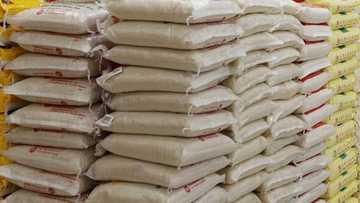FG Moves to Tackle Malnutrition Launches New Program Operation Feed Yourself
- The federal government has recently taken steps in tackling malnutrition in the country by launching a new program
- According to Vice President Yemi Osinbajo, the initiative ‘Operation Feed Yourself’ is aimed at addressing malnutrition and other challenges
- Meanwhile, the plan for this project is one out of the three major arrangements designed by the UN support food systems
Abuja- As part of its efforts in tackling malnutrition and providing food security, the federal government is set to launch the ‘Operation Feed Yourself’ initiative.
This move by the government is aimed at encouraging the establishment of urban farms and small home gardens across the country
Channels TV reports that Vice President Yemi Osinbajo explained that the initiative, to be undertaken in collaboration with states under the auspices of the National Economic Council and the National Council on Nutrition, was part of efforts to address malnutrition and related challenges.

Read also
Coca-Cola’s Project EQUIP Launches in Kano: Here Are 3 Areas the Initiative is Set to Tackle

Source: Facebook
The plan for this initiative is one of three major plans arising from the UN-backed Food Systems Dialogues, to advance the fight against malnutrition, the Vice President stated at a high-level meeting on nutrition on Monday, November 8.
PAY ATTENTION: Subscribe to Digital Talk newsletter to receive must-know business stories and succeed BIG!
Other plans, he added, were providing support to farmers across the country, especially by providing useful weather and soil pattern information that would improve farming yields, as well as encouraging state governments to ensure prompt release of budget for nutrition and related activities, This Day reported also.
Osinbajo said:
“There are practical steps that can be taken by the states and Federal Government in the next 12 months,” Professor Osinbajo told the meeting. “I think that some of the suggestions are important, especially those that have come from the UN Food System Dialogue.”

Read also
The Coca-Cola Foundation and Whitefield Foundation Will E.Q.U.I.P. 60,000 Nigerian Women and Youths
Boost Food Security
He listed the different stages as the establishment of agribusiness investment hubs or farm settlements, the establishment of urban farms and homestead gardens by individuals and schools, the adoption of weather information to support farming, leveraging the support of the UN agencies and other partners for nutrition activities, and the call on MDAs and states to release funding for nutrition activities.
He added:
“States and the FGN will promote what the convener has described as ‘Operation Feed Yourself’. This is more of the establishment of urban farms and homestead gardens,” the Vice President stated. “This is simply something that we think should be a mass appeal to citizens in the states, and the encouragement we can give them so that individuals and schools develop their own farms or homestead gardens.
“This obviously not only helps individuals and families but the excess can be sold to others and generally improve food security. The establishment of agribusiness investment hubs or farm settlements or farm estates or any variety of those kinds of integrated farming arrangements will improve food and nutrition security.

Read also
More trouble for smugglers as FG moves to reduce illegal importation of rice through land borders
“What we are recommending is the sort of model that Oyo State has or any of the variety that states have. That sort is obviously recommended because of the way that it is structured and the obviously good result that they have been getting.”
Experts harp on the need to expand cassava cultivation in Nigeria
Meanwhile, Legit.ng had earlier reported that experts in cassava seed production have emphasised the need to leverage resources from the private sector players to expand cassava farming in Nigeria.
Speaking during the National Cassava Summit held in Abuja, Nigeria’s capital, the experts who were drawn from public and private sectors agreed that Nigeria has not explored its potential to be the real leader in cassava production in Africa and indeed in the world.
Speaking at the summit with the theme, ‘Catalyzing and Scaling Private Sector-Led Cassava Seed Development,’ the Director of Agriculture and Agro-industry, Africa Development Bank (AfDB), Dr. Martin Fregene, said increased cassava yields could reduce the annual food import bill of African countries estimated at about $35 billion.
Source: Legit.ng


